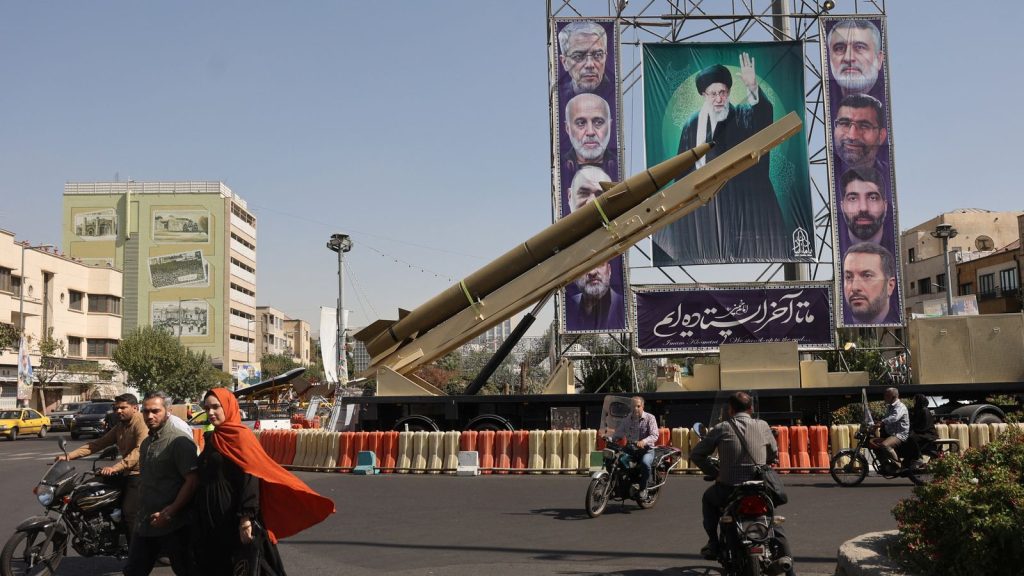UN Reimposes Sanctions on Iran Over Nuclear Program

The United Nations has brought back an arms embargo and a series of sanctions on Iran due to its nuclear program. The move follows a process initiated by European nations, prompting a warning from Tehran of a strong retaliatory response.
The action was triggered by Britain, France, and Germany, who brought the matter to the UN Security Council, alleging that Iran had breached the 2015 nuclear agreement designed to prevent it from building a nuclear weapon. Iran maintains that it is not pursuing nuclear arms.
The collapse of the decade-old agreement, which involved Iran and world powers including the U.S., Russia, and China, could further inflame instability in the Middle East. This development comes shortly after military strikes by the U.S. and Israel targeted Iranian nuclear infrastructure.
Sanctions originally established by UN Security Council resolutions between 2006 and 2010 were reinstated at 8 p.m. EDT on Saturday (0000 GMT Sunday). Efforts to block or postpone the full return of sanctions during the recent UN General Assembly session were unsuccessful.
“We urge Iran and all states to abide fully by these resolutions,”
the foreign ministers of France, Britain and Germany said in a joint statement after the deadline passed.
European Union foreign policy chief Kaja Kallas confirmed in a statement on Sunday that the bloc would “now proceed to implement the re-imposition of all previously lifted UN and EU nuclear-related sanctions without delay”.
Israel welcomed the return of sanctions, calling it a “major development” and accusing Tehran of ongoing violations related to its nuclear program.
“The goal is clear: prevent a nuclear-armed Iran. The world must use every tool to achieve this goal,” the Israeli Foreign Ministry said in a post on X.
Iran Responds, Recalls Ambassadors
Tehran has issued a warning of severe consequences in response to the sanctions. On Saturday, Iran announced it was summoning its ambassadors from Britain, France, and Germany for consultations. However, Iranian President Masoud Pezeshkian clarified on Friday that Iran has no intention of withdrawing from the nuclear Non-Proliferation Treaty.
Russia challenged the legality of the renewed UN sanctions. “It is unlawful, and it cannot be implemented,” Russian Foreign Minister Sergei Lavrov told reporters at the UN earlier on Saturday, adding that he had written to UN Secretary-General Antonio Guterres warning that it would be “a major mistake” for him to acknowledge a return of UN sanctions on Iran.
The European countries had proposed delaying the reinstatement of sanctions for up to six months to create room for diplomatic efforts — contingent on Iran allowing UN inspectors access to its nuclear sites, resolving concerns over its enriched uranium stockpile, and engaging in talks with the U.S.
“Our countries will continue to pursue diplomatic routes and negotiations. The reimposition of U.N. sanctions is not the end of diplomacy,” the foreign ministers of Britain, France and Germany said, urging Iran to “return to compliance”.
U.S. Secretary of State Marco Rubio said in a statement President Donald Trump has been clear that diplomacy is still an option for Iran and a deal remains the best outcome for the Iranian people and the world.
“For that to happen, Iran must accept direct talks, held in good faith, without stalling or obfuscation,” Rubio said, adding that until there was a new deal it was important for countries to implement sanctions “immediately in order to pressure Iran’s leaders”.
The Iranian economy remains under heavy strain due to sweeping U.S. sanctions reimposed in 2018 after the U.S. withdrew from the nuclear agreement. Concerns over fresh sanctions pushed Iran’s currency, the rial, to a new historic low, falling to 1,123,000 per U.S. dollar on Saturday from about 1,085,000 on Friday, according to data from foreign exchange websites including Bon-bast.com.
With the return of UN sanctions, Iran once again faces a ban on arms trading and restrictions on uranium enrichment, reprocessing activities, and work on ballistic missiles capable of carrying nuclear warheads.
Other sanctions being reinstated include travel bans for dozens of Iranian individuals, asset freezes on multiple people and entities, and restrictions on the supply of materials that could support Iran’s nuclear program.
All member states are now authorized to seize and dispose of any items prohibited under the UN measures. Iran is also banned from participating in any foreign commercial ventures involving uranium mining, nuclear materials, or related technologies.
